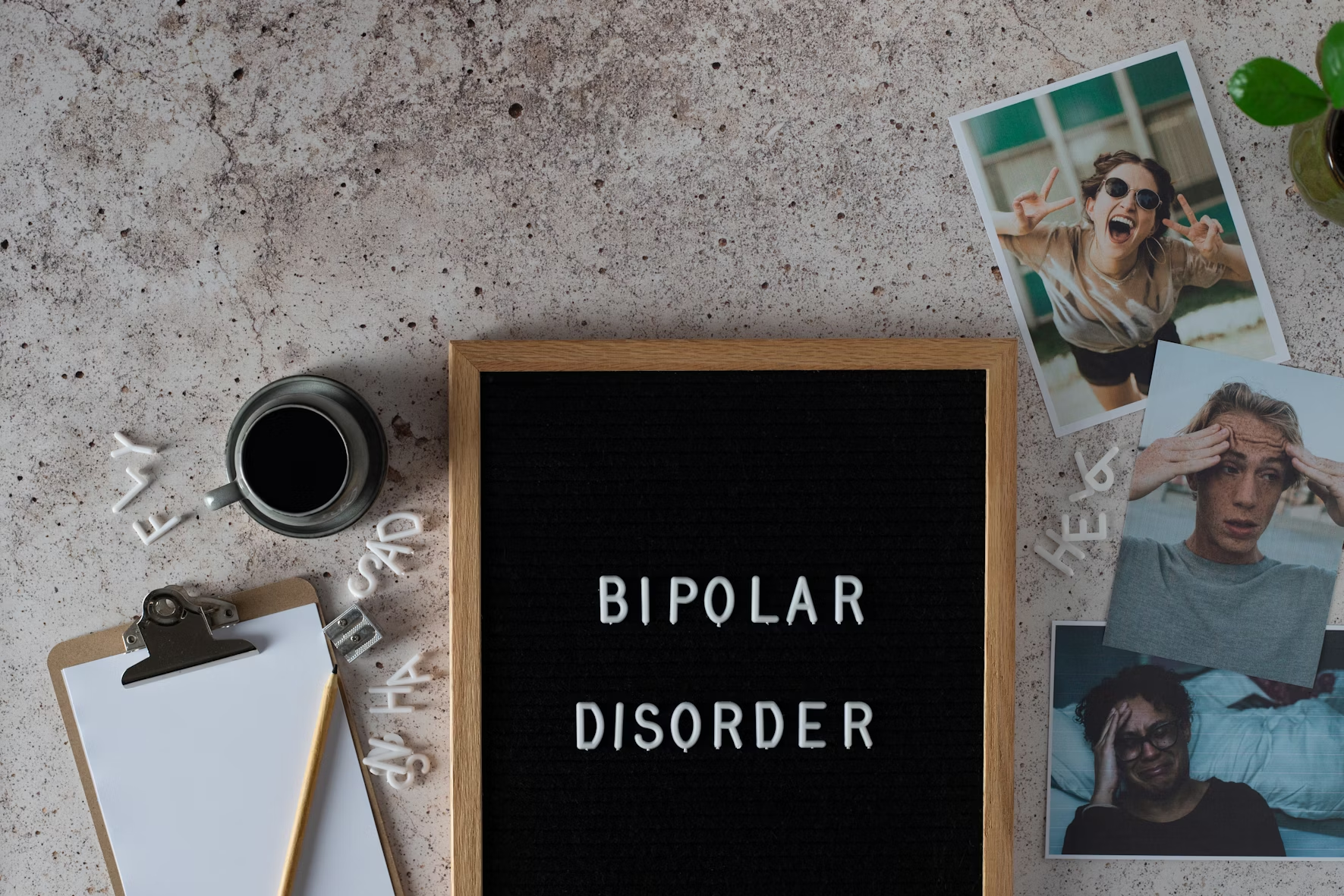From Awareness to Action: Insights on World Bipolar Day

Written by: Sabeeha Azmi
Photo by Micheile Henderson on Unsplash
World Bipolar Day is commemorated annually on March 30th, to raise awareness and advocate for bipolar disorder. It presents a great opportunity to educate the community and improve support and resources for individuals with bipolar disorder. This initiative aims to reduce the stigma surrounding this mental health condition, and to enhance and promote mental wellness within societies worldwide.
Bipolar disorder is a mental health condition that is characterised by extreme mood swings that range from depressive lows to manic highs, and affects millions of individuals worldwide. It can result in shifts in mood, activity, and energy levels. Individuals with bipolar disorder experience episodes of mania, which can include impulsivity, elevated mood, a significant increase in energy levels, etc. These can also alternate with episodes of depression, which include feelings of hopelessness, low mood, fatigue, etc. (Grande et al., 2016). Bipolar disorder exists on a spectrum with different subtypes and varying degrees of severity. Symptoms can vary in intensity and frequency, impacting various aspects of an individual’s life including work, interpersonal and intrapersonal relationships, and daily functioning (Vieta et al., 2018). Living with this mental health condition can be challenging, but with the right support and treatment, individuals can manage their symptoms effectively and lead fulfilling lives (Chia et al., 2019).
Despite the high prevalence of bipolar disorder, it is apparent that there is a significant lack of understanding and awareness surrounding this complex condition. Thus, World Bipolar Day serves as a pivotal platform for fostering empathy and challenging misconceptions about individuals navigating bipolar disorder.One of the main goals of World Bipolar Day is the de-stigmatisation of the disorder. When stigma is associated with mental health conditions like bipolar disorder, it can cause a barrier to seeking help and receiving the necessary support (Hawke et al., 2013). By promoting open and authentic discussions and educating communities, this day contributes to honing a more supportive and inclusive environment.
In addition, World Bipolar Day encourages individuals with this condition to have open dialogues about their experiences and challenges with their friends and family. It emphasises the importance of proper diagnosis, early detection, and receiving effective treatment. Through outreach efforts, programmes, and informative campaigns, the day allows individuals to feel empowered to recognise their symptoms, seek professional support, and access appropriate and sound resources (Chia et al., 2019).
An essential aspect of World Bipolar Day is highlighting the lived experiences of individuals with this disorder. Testimonials and personal stories from them and their families provide us with valuable and authentic insights and perspectives into the daily realities of managing and living with bipolar disorder. A sense of empathy and understanding is fostered by sharing these narratives, helping communities to become more aware and supportive (Veseth et al., 2012; Warwick et al., 2019).
This day serves as an important reminder of the significance of mental health awareness and advocacy. Through increasing understanding, challenging stigma, and promoting compassion and empathy, this global initiative strives to enhance the well-being of individuals with bipolar disorder. It also encourages communities to prioritise mental health, give support to one another, and work towards creating a more inclusive society.
As we continue to revisit the spirit of World Bipolar Day every year, let us foster a culture of consideration and care for everyone navigating the complexities of mental health challenges. Together, we can step forward and break down barriers for the emergence of holistic wellness for us all.
References
Chia, M. F., Cotton, S., Filia, K., Phelan, M., Conus, P., Jauhar, S., Marwaha, S., McGorry, P. D., Davey, C., Berk, M., & Ratheesh, A. (2019). Early intervention for bipolar disorder – do current treatment guidelines provide recommendations for the early stages of the disorder? Journal of Affective Disorders, 257, 669–677. https://doi.org/10.1016/j.jad.2019.07.062
Grande, I., Berk, M., Birmaher, B., & Vieta, E. (2016). Bipolar disorder. The Lancet, 387(10027), 1561-1572.
Hawke, L. D., Parikh, S. V., & Michalak, E. E. (2013). Stigma and bipolar disorder: a review of the literature. Journal of Affective Disorders, 150(2), 181-191.
U.S. Department of Health and Human Services. (n.d.). Bipolar disorder. National Institute of Mental Health. https://www.nimh.nih.gov/health/topics/bipolar-disorder
Veseth, M., Binder, P. E., Borg, M., & Davidson, L. (2012). Toward caring for oneself in a life of intense ups and downs: a reflexive-collaborative exploration of recovery in bipolar disorder. Qualitative Health Research, 22(1), 119-133.
Vieta, E., Berk, M., Schulze, T. G., Carvalho, A. F., Suppes, T., Calabrese, J. R., Gao, K., Miskowiak, K. W., & Grande, I. (2018). Bipolar disorders. Nature Reviews Disease Primers, 4(1). https://doi.org/10.1038/nrdp.2018.8
Warwick, H., Tai, S., & Mansell, W. (2019). Living the life you want following a diagnosis of bipolar disorder: A grounded theory approach. Clinical Psychology & Psychotherapy, 26(3), 362-377.
What are bipolar disorders? Psychiatry.org – What Are Bipolar Disorders? (n.d.). https://www.psychiatry.org/patients-families/bipolar-disorders/what-are-bipolar-disorders
